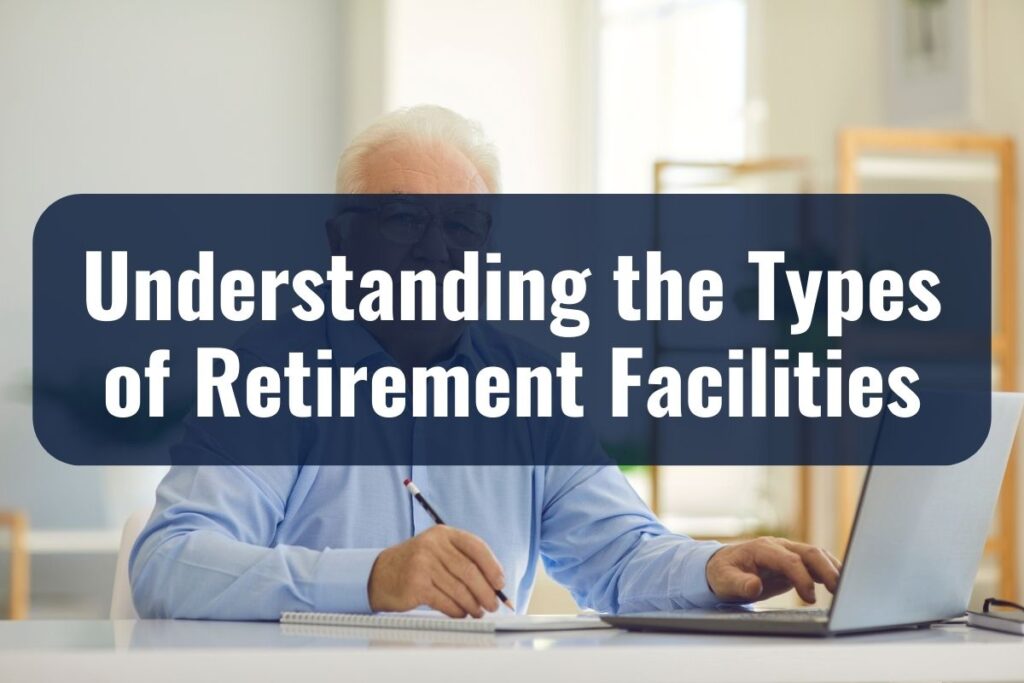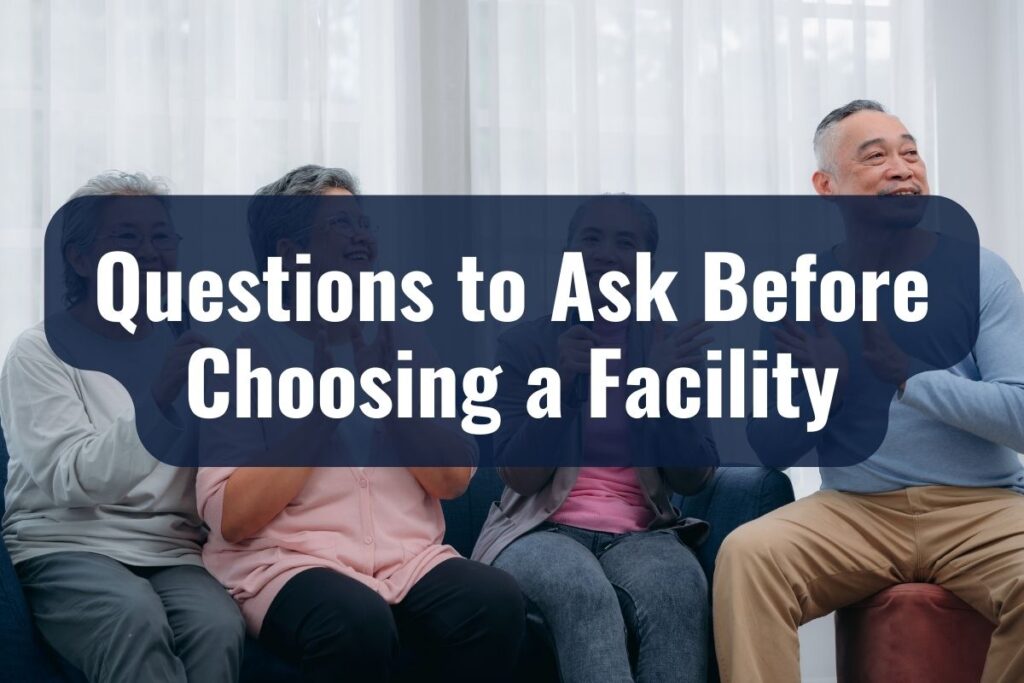Over the years, Thailand has become a favored destination for many retirees, offering a unique blend of cultural richness, warm hospitality, and cost-effective living. As the concept of retirement homes gains traction in this tropical paradise, understanding the intricacies of such facilities becomes paramount for expats.
In the past, traditional family structures in Thailand often meant that the elderly lived with their families. However, as societal dynamics evolve and the expat community continues to grow, there’s been an increasing demand for retirement homes in Thailand that cater to diverse needs. For expats, this means a broader range of choices but also necessitates a deeper understanding of what each facility offers.
KEY TAKEAWAYS
- Thailand offers cost-effective living, quality healthcare, and a welcoming culture for retirees.
- Understand the different types of retirement facilities, from independent living to nursing homes.
- Prioritize English-speaking staff, cultural activities, medical facilities, and transportation when choosing a facility.
- Consider legal aspects like retirement visas, financial planning, and property ownership.
- Popular retirement areas include Bangkok, Chiang Mai, and coastal regions.
- Ask essential questions about costs, staff-to-resident ratios, references, and emergency protocols.
Why Consider Thailand for Retirement Living?
Thailand has long been a sought-after destination, not just for tourists but increasingly for retirees. Here’s why many expats are choosing Thailand for their retirement living:
Cost-effective Living
One of the primary attractions of Thailand is the cost of living. From daily expenses to medical care, Thailand offers a lifestyle that can be substantially more affordable than many Western countries. Dining out, hiring domestic help, and enjoying various recreational activities can all be done without breaking the bank.
Quality Healthcare System
Thailand boasts a robust healthcare system with state-of-the-art facilities. Cities like Bangkok, Chiang Mai, and Phuket are home to internationally accredited hospitals where medical professionals often have international training. Furthermore, medical procedures, treatments, and medications are often available at a fraction of the cost compared to Western counterparts.
Warm Climate and Rich Cultural Experiences
For those looking to escape cold winters, Thailand offers a tropical climate with plenty of sunshine. Additionally, the country is rich in culture, from its grand temples and traditional festivals to its world-renowned cuisine. Expats can immerse themselves in a myriad of cultural experiences, ensuring a fulfilling retirement.
The Welcoming Nature of Thai People
The Thai phrase “Land of Smiles” isn’t just a tourism slogan. The people of Thailand are genuinely warm, hospitable, and respectful. The sense of community and belonging can make the transition to a new country much smoother and enjoyable for retirees.
Understanding the Types of Retirement Facilities

When considering retirement in Thailand, it’s essential to recognize that “retirement facilities” isn’t a one-size-fits-all term. Depending on individual needs and preferences, different types of establishments cater to varying degrees of care and independence. Here’s a breakdown:
Independent Living
For retirees who are mostly self-sufficient and require minimal assistance, independent living facilities are an ideal choice. These communities often resemble regular housing but are tailored for seniors. They may offer communal activities, security features, and certain amenities but generally don’t provide daily medical or personal care.
Assisted Living
Assisted living bridges the gap between independent living and more intensive care facilities. Residents in these facilities have their own living space but have access to assistance with daily activities such as bathing, medication management, and meals. There’s a balance of independence combined with the assurance of available help when needed.
Nursing Homes
Nursing homes are designed for individuals who require regular medical attention and assistance with most daily activities. Staffed with medical professionals, these facilities offer 24-hour care and monitoring. They cater to residents with chronic health conditions, post-surgical recovery needs, or significant mobility issues.
Specialized Care Facilities
These are tailored for specific needs or medical conditions. For instance, a facility might focus solely on dementia care or rehabilitation after a specific surgery. They offer specialized staff, equipment, and environments suited to cater to these particular requirements.
Key Features to Look For
Finding the right retirement facility in Thailand involves more than just choosing a type of care. It’s essential to consider various features that can greatly influence the quality of life and overall experience. Here’s what expats should prioritize:
Language Proficiency
Given that the primary readership of this article is English-speaking expats, it’s crucial to ensure that the staff at the chosen facility can effectively communicate in English. This is not just for everyday interactions but also for understanding medical instructions, emergencies, and administrative matters.
Cultural and Recreational Activities
A fulfilling retirement isn’t just about quality care; it’s also about leading an enriched life. Facilities that offer a range of cultural and recreational activities can greatly enhance the experience. This might include Thai cooking classes, traditional dance sessions, local excursions, or even language lessons.
Medical Facilities
The proximity and quality of medical facilities are paramount, especially for those in assisted living or nursing homes. Whether it’s on-site medical services or a nearby well-reputed hospital, easy access to healthcare is a must. Additionally, it’s worth checking if the facility has partnerships or affiliations with local healthcare providers.
Transportation
Whether it’s for personal outings, medical appointments, or simply exploring the Thai landscape, transportation plays a vital role. Some retirement facilities offer their own transportation services, while others might be located close to public transportation options. Considering how you plan to move around can influence your facility choice.
Legal and Financial Considerations

Before embarking on your retirement journey in Thailand, it’s crucial to be well-versed in the legal and financial aspects that can impact your experience. Here are some key considerations for expats:
Retirement Visa Requirements
Thailand offers a specific retirement visa, known as the Non-Immigrant “O-A” Visa, designed for retirees. To obtain this visa, applicants must meet certain criteria, including being at least 50 years old and having sufficient financial resources. It’s essential to understand these requirements and the application process to ensure a smooth transition.
Costs Associated with Retirement Facilities
The cost of retirement facilities in Thailand can vary significantly depending on the type of care, location, and amenities offered. Independent living may be more budget-friendly, while nursing homes tend to be more expensive. It’s crucial to have a clear understanding of the fees, contract terms, and any additional costs before making a commitment.
Insurance Coverage and Healthcare Costs
Healthcare is a top priority for retirees, and understanding how health insurance works in Thailand is essential. Expats often opt for private health insurance plans tailored to their needs, which can provide coverage for medical treatments and hospital stays. Researching insurance options and understanding healthcare costs will help you make informed decisions regarding your well-being.
Property Ownership or Rental Agreements
If you’re considering buying property in Thailand, be aware that there are restrictions on land ownership for foreigners. However, there are legal ways to secure long-term leases or buy condominiums. Understanding property laws, rental agreements, and the associated costs is crucial if you plan to reside in your own home during retirement.
Location Matters: Popular Areas for Retirement Homes in Thailand
Choosing the right location for your retirement home in Thailand is a significant decision that can greatly impact your overall experience. Here, we explore some of the popular areas where retirees often choose to settle:
Urban vs. Rural: Benefits of Each
Thailand offers a diverse range of locations, from bustling urban centers to tranquil rural areas. Consider your lifestyle preferences when deciding between these options. Urban areas like Bangkok provide access to world-class medical facilities, entertainment, and amenities. In contrast, rural areas offer a quieter pace of life, natural beauty, and a lower cost of living.
Bangkok: Metropolitan Living
The capital city, Bangkok, is a top choice for retirees who seek the vibrancy of urban living. It boasts international hospitals, an extensive public transportation system, and a wide range of cultural and recreational activities. Expats can enjoy the convenience of city life while still experiencing the warmth of Thai hospitality.
Chiang Mai: Cooler Climate and Cultural Richness
Located in northern Thailand, Chiang Mai is known for its cooler climate and rich cultural heritage. It offers a blend of modern amenities and traditional Thai charm. The city is home to numerous retirement communities and boasts a thriving expat community.
Phuket and Coastal Areas: Beachfront Retirement
For those who dream of retiring by the beach, Phuket and other coastal areas offer stunning seaside living. These locations provide retirees with access to beautiful beaches, water activities, and a relaxed lifestyle. However, costs may be higher in these tourist-friendly regions.
Related: The Climate in Thailand: Understanding the Thai Weather
Questions to Ask Before Choosing a Facility

Selecting the right retirement facility in Thailand is a significant decision, and it’s essential to ask the right questions to ensure your needs are met. Here are key inquiries to make before making your choice:
Are There Any Hidden Costs?
Transparency in costs is vital. Ask for a breakdown of all fees and charges, including accommodation, meals, and any additional services. Inquire about potential increases in fees over time and what is included in the base cost versus extra charges for specific services or amenities.
What is the Staff-to-Resident Ratio?
The quality of care often depends on the staff-to-resident ratio. A lower ratio means more personalized attention and care. It’s essential to understand how many caregivers or staff members are available to assist residents and how they are trained to handle various needs.
Are There Any Expat Testimonials or References Available?
Seek out feedback from current or former residents, especially expats who have lived in the facility. Expat testimonials can provide valuable insights into the day-to-day experiences, the level of care provided, and the overall atmosphere within the facility.
What’s the Protocol in Case of Medical Emergencies?
Understanding how the facility handles medical emergencies is critical for your peace of mind. Inquire about the presence of medical professionals on-site, the availability of 24/7 emergency services, and the proximity to hospitals. Having a clear plan for medical contingencies is essential.
How is Cultural Sensitivity Addressed?
For expats in Thailand, cultural differences can sometimes lead to misunderstandings. Ask how the facility ensures cultural sensitivity in its staff training and day-to-day operations. This includes dietary preferences, religious practices, and respect for cultural norms.
Potential Challenges and Solutions
While retiring in Thailand offers a wealth of benefits, it’s essential to be aware of potential challenges and how to address them. Here are some common issues expats may encounter and solutions to mitigate them:
Language Barriers
Challenge: Language differences can be a barrier to effective communication with locals and even within the retirement facility.
Solution: Learning some basic Thai phrases can go a long way in bridging the language gap. Additionally, choose facilities with English-speaking staff or hire interpreters when needed.
Cultural Differences
Challenge: Adapting to a new culture and its customs can be challenging, especially for expats from Western countries.
Solution: Take time to learn about Thai culture and etiquette. Engage in cultural activities and immerse yourself in local customs. Building relationships with local residents and fellow expats can provide valuable support and insights.
Maintaining Connections Back Home
Challenge: Retiring in Thailand may mean being far away from family and friends back home.
Solution: Stay connected through technology, such as video calls and social media. Consider planning visits or inviting loved ones to join you for periods of your retirement. Engaging in expat communities can also provide a sense of belonging.
Healthcare Planning
Challenge: Navigating the healthcare system in a foreign country can be complex.
Solution: Invest in comprehensive health insurance that covers your specific needs. Establish a relationship with local healthcare providers and keep your medical records organized. Consider having a medical advocate or a trusted friend who can assist in medical matters.
Legal and Financial Compliance
Challenge: Complying with Thai visa requirements and financial regulations can be daunting.
Solution: Seek legal and financial advice from professionals who specialize in expat retirement. Ensure that you have a clear understanding of visa requirements and financial obligations. Staying informed and up-to-date on Thai regulations is essential.
Related: How to be Polite in Thailand: A Practical Guide for Foreigners
Additional Resources
The official website of the Thai Ministry of Public Health can be a valuable resource for information on accredited retirement facilities, healthcare standards, and regulations. It’s a reputable source for understanding the healthcare landscape in Thailand.
Online expat forums and communities are treasure troves of firsthand experiences and advice from fellow expats living in Thailand. Websites like ThaiVisa, Expat.com, and Reddit’s r/Thailand subreddit offer vibrant communities where you can ask questions and get real-world perspectives.
Many cities in Thailand have expat associations or clubs that organize social events, provide support, and offer information on local services. These associations can be excellent sources of networking and advice.
Seeking guidance from legal and financial professionals who specialize in expat matters can be invaluable. They can provide tailored advice on visa requirements, property ownership, tax considerations, and financial planning.
Whenever possible, visit prospective retirement facilities in person to assess their suitability. This firsthand experience allows you to see the living conditions, interact with staff, and get a feel for the environment.
Your home country’s embassy or consulate in Thailand can provide information on legal requirements, visa processes, and assistance in case of emergencies. They are valuable resources for expatriates.
Books, travel guides, and online resources focused on retirement in Thailand can offer comprehensive information on various aspects, from cultural insights to practical advice on daily living.


